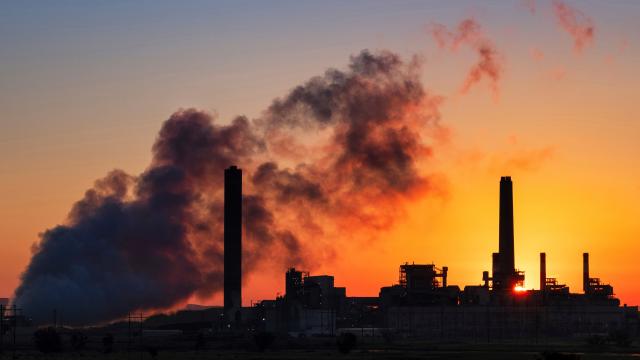As Donald Trump’s administration continues to try to make coal happen despite it being increasingly expensive and a serious tax on the environment, a new report claims that more than 40 per cent of the world’s coal power plants are actually operating at a loss. It’s a figure that will only climb with increased regulation and carbon pricing as well as increasingly cheaper renewables like wind and solar power.
Carbon Tracker, the London-based think tank behind the study, found that moving away from coal as a power source isn’t only a smart move for mitigating climate change but also one that makes sense economically.
According to its findings, 42 per cent of worldwide plants aren’t profitable as the result of steep fuel costs, and that figure could reach to more than 70 per cent by 2040. New renewables, they predicted, will by 2030 be “cheaper than continuing to operate 96 per cent of today’s existing and planned coal plants.”
“Our analysis shows a least-cost power system without coal should be seen as an economic inevitability rather than a clean and green nicety,” Sebastian Ljungwaldh, Carbon Tracker energy analyst and co-author, said in a statement.
To arrive at those figures, Carbon Tracker utilised advanced machine learning and satellite imagery to assess the activity and profitability of 6,685 coal plants across the world, a figure that represents 95 per cent of total operating capacity and 90 per cent of capacity under construction.
Carbon Tracker said it specifically looked into areas like China, which rely on fossil fuel power but have little or even conflicting data about those plants, and noted that “for asset-level inventory data to be actionable it will need to be translated into economic and financial outcomes.”
What’s more, Carbon Tracker said consumers are footing the bill to keep coal plants that aren’t economically viable alive. According to the study, moving away from coal could potentially save taxpayers billions.
“The narrative is quickly changing from how much do we invest in new coal capacity to how do we shut down existing capacity in a way that [minimizes] losses,” Matt Grey, Carbon Tracker’s head of power and utilities and a co-author of the report, said in a statement.
We’ve known for some time that coal is a dying and increasingly expensive industry. But by crunching the numbers, Carbon Tracker has laid out a convincing economic argument for coal plant phase-outs.
The report arrived ahead of COP24, a major United Nations conference on climate change taking place this week in Katowice (which it’s worth noting also happens to be in the center of Poland’s coal region).
The Washington Post noted that coal is expected to be a primary talking point as more than 200 countries convene to address climate change.
As if the looming climate crisis isn’t enough of a reason to kick coal to the curb, the potential to save billions sure makes a convincing case.
